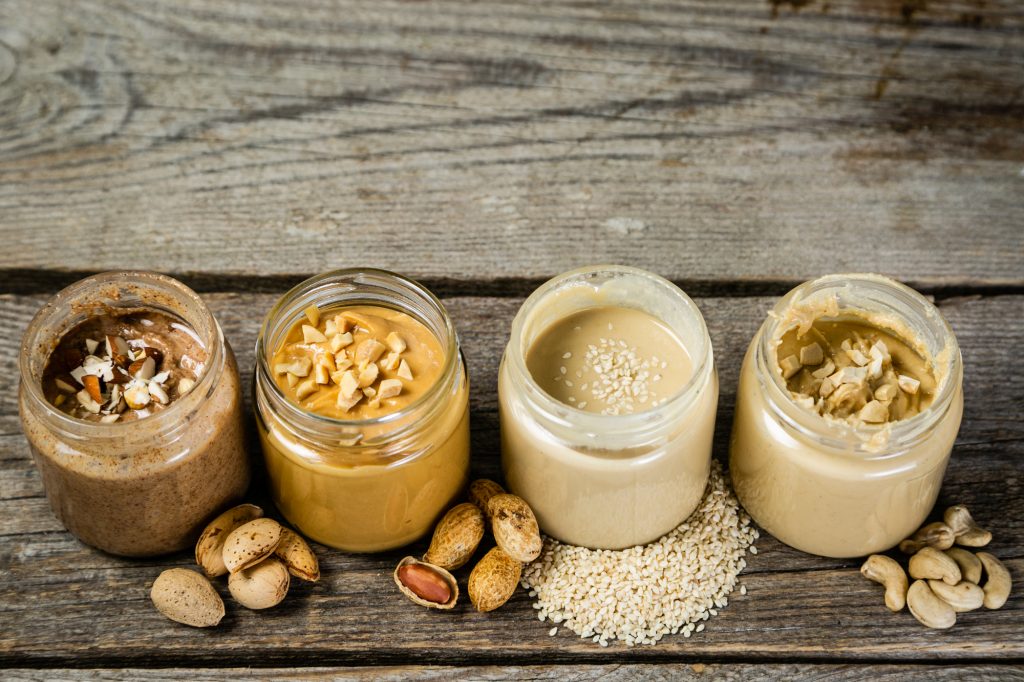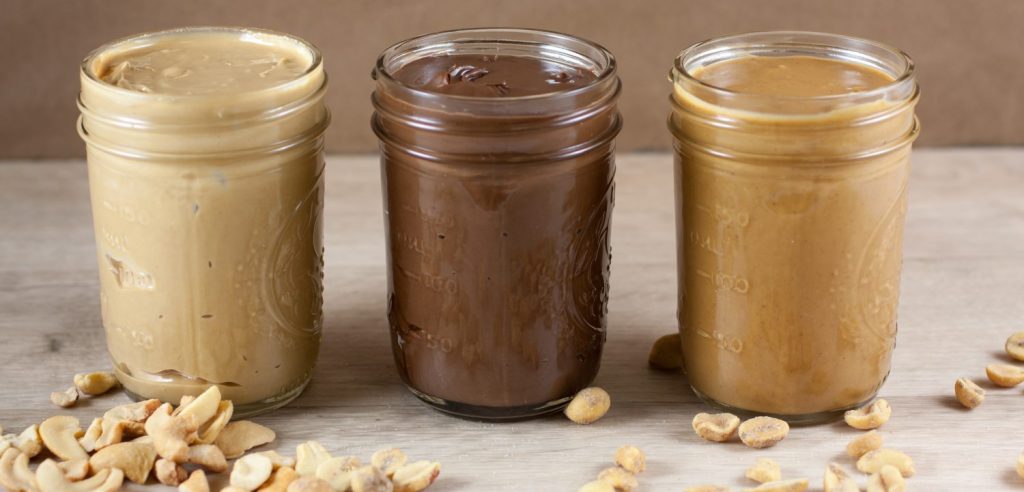Ezra Cohen Montreal on the Difference Between Peanut Butter and Other Nut Butters
At Ezra Cohen Montreal, we consider ourselves to be experts when it comes to nut butter. And that includes being able to answer your questions about the nutritional differences between traditional peanut butter and other nut butters.
It’s not always easy to make nutritious choices for yourself and your family. Nutrition fact information on packaging can be quite confusing, especially when you are trying to compare information between various items.
Nut butters—peanut butter included—make an excellent addition to a wholesome diet. They’re full of the protein and healthy unsaturated fats that keep your body strong and provide a strong nutritional boost to snacks and meals. That being said, peanut butter and other nut butters are not all exactly the same. So where do the differences lie? Let’s dig in.
Nut Butter vs. Peanut Butter

Traditional peanut butter has been a go-to product in American pantries for decades (in fact, Ezra Cohen, McGill University graduate and founder of Ezra Cohen Montreal bases his recipes off of a longtime love of this pantry staple). Recently, however, new nut butters have been stealing peanut butter’s place in the spotlight. Today, you’re just as likely to find a jar of creamy cashew or almond butter on someone’s shelf as you are to find a jar of standard peanut butter.
The first difference you generally find between peanut butters and other nut butters is the price. Peanuts cost less than many other nuts, so you’ll often spend less on peanut butter than you would on something like Brazil nut butter. In addition to the cost of key ingredients, price discrepancies are also tied to quality and creative flavor combinations.
Cost aside, the big differences between peanut butter and nut butters is nutritional. Here’s how they compare tablespoon to tablespoon.
| Peanut Butter | Almond Butter | Cashew Butter | Brazil Nut Butter | |
| Calories | 100 | 98 | 97 | 105 |
| Protein | 4.1 | 3.4 | 1.9 | 2.2 |
| Sugar | 0.8 | 0.7 | 1.5 | 0.4 |
| Carbohydrates | 3.6 | 3 | 4.8 | 1.9 |
| Fiber | 1.4 | 1.6 | 0.5 | 1.1 |
| Total fat | 8.4 | 8.9 | 8.5 | 10.6 |
*All nutritional information is for one tablespoon (16 grams) of plain varieties.
What’s the healthiest choice?
If you’re going off just the numbers, it would appear as though there is no clear winner when it comes to peanut butter and other nut butters. All will offer you a good dose of fiber and protein with limited amounts of sugar, and all are relatively low in terms of carbohydrates. When it comes to fat, keep in mind that the amounts include both saturated fats and their healthy counterparts—unsaturated fats. Generally, you will find higher amounts of unsaturated fat in nut butters and peanut butter than saturated fat.
However, there are a number of long-term beneficial health advantages by choosing nut butters over peanut butter. Many nut butters offer an extremely high dose of healthy fats and fiber, two components responsible for lowering heart disease risk and for the production of “good” cholesterol. These can even reduce the risk for onset, Type-II diabetes.
The verdict: There are certainly differences, but overall, any type of nut butter is good for you! Indulge in moderation and both peanut butter and other nut butters can be a part of a well-rounded meal plan. Need some recipe inspiration? Check out our blog or Instagram!



Leave a Comment